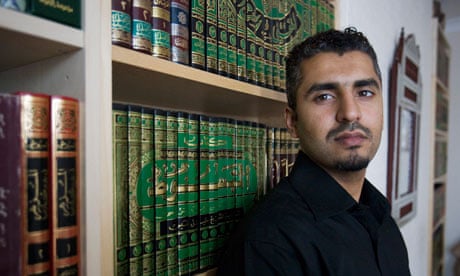A former recruiter for an extreme Islamist organisation has described how he has diverted his "transferable skills" of "organising, propagandising and preaching" to persuading the young people of Pakistan of the virtues of democracy and human rights.
Essex-raised Maajid Nawaz claims he became drawn to extreme Islamism after an encounter with members of the far-right group Combat 18 and reports of the massacre of Muslims at Srebrenica during the Bosnian war. He went on to "recruit army officers" in Pakistan to the Hizb ut-Tahrir cause and organised branches of the organisation in Egypt and Denmark while he was a student at the University of London in the 1990s.
Speaking at the Edinburgh international book festival on Sunday, Nawaz told how, after the September 11 attacks, he was arrested by the Egyptian security services and imprisoned for four years.
He had been spending a year in Egypt while a student at the School of African and Oriental Studies in London. While there, he became the head of the Alexandria chapter of Hizb ut-Tahrir.
He was held in Mazrah Tora, among prisoners ranging from jihadists to homosexuals to the assassins of Sadat. It was here, in the cells now occupied by the former president, Hosni Mubarak, among others, that he received his "real political education" and "came to re-evaluate everything I stood for".
Nawaz, who has written of his experiences in his memoir, Radical, told how in the 1990s the British government and security services were "caught completely unawares" by the radicalisation of large numbers of Muslim teenagers and young people.
Meanwhile, "the liberal left, because they did not want to be seen as racist and did not realise the difference between multiculturalism and totalitarianism parading as a religion, were ill-equipped to deal with it." He added: "I disagree with most of what [the commentator and author] Melanie Phillips says, but she was right when she said that London became Londonistan," he said.
After his release from prison, Nawaz co-founded an organisation in Pakistan called Khudi, which aims to recruit young people to democracy – "a democrats' version of the Muslim Brotherhood", he said. "The neo-Conservatives got it wrong," he added. "You can't impose democracy down the barrel of a gun. That's the supply-led approach. You need a demand-led, grassroots approach." He hopes to spread the organisation to other nations, including Somalia. "Hopefully, if I don't get shot first, it will succeed."
